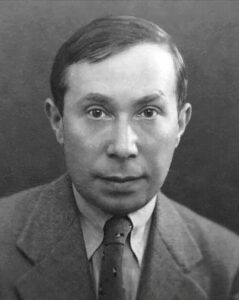Sobre Apología y Critón Strūthiō 003
Parte de:
«Sobre la Apología de Sócrates y el Critón de Platón» / I

Leōnardus Strūthiō (1899-1973)
ĒRVDĪTIŌRIBVS ***
Tabla de contenidos
Versiō hispānica Aemiliā Aquadītī auctrīce 3
Antes de abocarse a la refutación de los primeros acusadores, Sócrates deja en claro que «ellos» —todo el jurado, todos los atenienses— tienen prejuicios contra él y, de esta manera, indica que su caso es poco menos que desesperado. Se defiende de la acusación de impiedad ante un jurado que está convencido de su impiedad. Desearía poder liberar a los atenienses de sus prejuicios si esto fuera, de alguna forma, mejor para ellos y para él: una de las muchas cosas que no sabe es si para los atenienses no es mejor mantener indemnes sus prejuicios.
Sócrates reformula la calumnia de los primeros acusadores al expresarla como una acusación formal. En consecuencia, esta resulta más responsable que la calumnia misma: no habla de que Sócrates haya investigado todo lo que está bajo la tierra, sino de su investigación de las cosas ocultas por la tierra. Al igual que la calumnia original, la acusación no dice que Sócrates no rendía culto a los dioses o no creía en ellos. Pero el acusado añade ahora que «Sócrates enseña a otros esas mismas cosas», a saber, las cosas de debajo de la tierra, las cosas celestiales, y cómo hacer más fuerte el discurso más débil: si no enseñara las cosas que se le incriminan, no se sabría que tiene algo que ver con ellas. Al hacer este agregado, sienta, por así decirlo, las bases de la bipartición hecha en la acusación oficial (impiedad y corrupción de los jóvenes): la acusación oficial deriva de la primera acusación.
Perge ad initium paginae huius
Leōnardī Strūthiōnis verba 3
Before turning to the refutation of the first accusers, Socrates makes it clear that “you”—the the whole jury, all Athenians—are prejudiced against him and thus indicates that his case is well-nigh hopeless. He defends himself against the charge of impiety before a jury that is convinced of his impiety. He would wish that he could liberate the Athenians from their prejudices if this is in any way better both for them and for him: one of the many things he does not know is whether it is not better for the Athenians to keep their prejudice intact.
Socrates restates the slander of the first accusers by framing it as a formal indictment. As a consequence, it becomes more responsible than the slander itself: it does not speak of Socrates’ having investigated all things beneath the earth, but of his investigating the things beneath the earth. The formal indictment is as silent as the original slander on Socrates’ not worshipping, or not believing in, gods. But Socrates adds now that “Socrates teaches others these very things,” namely, the things beneath the earth, the heavenly things, and rendering the weaker speech the stronger: if Socrates did not teach the incriminated things, it would not be known that he had anything to do with them. By making this addition he lays as it were the foundation for the bipartition made in the official accusation (impiety and corrupting the young): the official accusation is derivative from the first accusation.
Perge ad initium paginae huius
Iūra
El texto en lengua inglesa fue publicado de manera póstuma en un volumen en honor al prof. Jacob Klein: Essais in Honor of Jacob Klein (Annapolī, ē Typographeō Acadēmīae Sānctī Iōhannis MCMLXXVI). Aunque nosotros tomamos como base lo aparecido en una antología dedicada a escritos del prof. Strūthiō en inglés en 1983: Studies in Platonic Political Philosophy (Sicagī, ē Typographeō Ūniversitātis Sicagī MCMLXXXIII). La versión castellana es obra de Aemilia Aquadīs, aparecida en la traducción del volumen mencionado anteriormente (Bonāeropolī, ē Typographeō Amōrrortī MMVIII). La publicación de estos fragmentos promueve la difusión en castellano de la obra del profesor Leōnardus Strūthiō con fines académicos y de formación. Conminamos a visitar su biblioteca más cercana o adquirir el volumen físico en su librería de confianza.

Perge ad initium paginae huius
ĒRVDĪTIŌRIBVS ***
